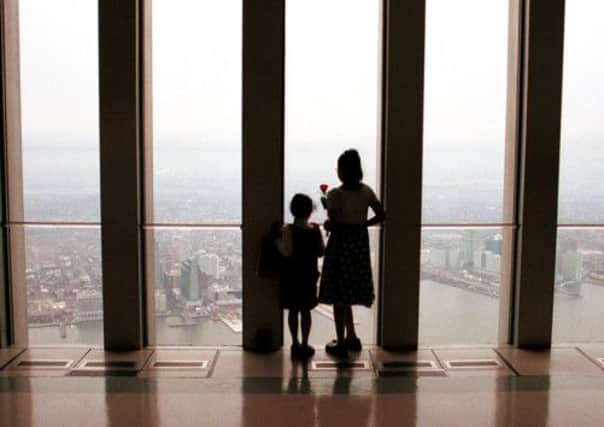Book review: Bleeding Edge by Thomas Pynchon


Bleeding Edge by Thomas Pynchon
Jonathan Cape, 480pp, £20
When Mason & Dixon came out in 1997, I foolishly thought that Pynchon’s sprawling epic about drawing a straight line across America was his triumphant swansong. Then came the even weightier Against The Day in 2006: taking in the 1893 World’s Fair, Nikola Tesla, Lovecraftian monsters and a talking dog called Henry James, Pynchon himself said it was about “unrestrained corporate greed, false religiosity, moronic fecklessness and evil intent in high places. No reference to the present time is intended or should be inferred”.
This, I thought, was the apex of his career. Three years later and Inherent Vice was released, a psychedelic-noir in which private eye Doc Sportello watches the end of the 1960s and uncovers a plot involving bank notes with Richard Nixon’s face on them. A glorious, final jeu d’esprit, I thought, having not learned the lesson of the previous books. Now we get Bleeding Edge, combining the gumshoe schtick with the mammoth overview. Surely now Pynchon must be in line for the Nobel Prize?
Advertisement
Hide AdThe central character of Bleeding Edge is Maxine Tarnow, a certified fraud examiner who has just lost her certificate and her husband, Horst Loeffler. The first page establishes the place (New York) and the date (Spring 2001). After about 100 pages, the penny dropped. This is Pynchon’s 9/11 novel.
It doesn’t, however, begin with terrorism. Rather, as Maxine investigates internet entrepreneur Gabriel Ice, she begins to uncover evidence that the dot-com bubble may have been deliberately manufactured. It draws her into a shadow-world of hackers, geeks and “code-monkeys”, with links to both the security services and the Russian mafia. This being a Pynchon novel, it also brings her into the orbit of a “private nose” – an olfactory specialist obsessed with Hitler’s aftershave – and a possibly time-travelling, neoliberal black ops agent. It induces the particular form of literary vertigo that Pynchon has specialised in; a giddying, queasy uncertainty, where everything is both random and connected. It deals with paranoia – the theme Pynchon explored so thoroughly in V, The Crying Of Lot 49 and Gravity’s Rainbow – but with a febrile self-consciousness: on page 11 Maxine says “paranoia’s the garlic in life’s kitchen, you can never have too much”.
It also has some of the very best bad jokes Pynchon has written: the extended riff about a cartoon Maxine’s kids watch, when Scooby-Doo ends up in Colombia, has a pay-off about “Medellín kids”, and there’s a running gag about fake biopics – Christopher Walken in the Chi Chi Rodgriguez story, Edward Norton in the Anton Chekhov story and so on. Given the central event, it is no wonder Pynchon wanted to leaven the horror in this way.
In a very strange manner, this is a historical novel. Pynchon’s eye for period detail is phenomenally sharp if decidedly odd. There’s a Britney Spears song quoted in the first chapter, and Pynchon has amassed all the cultural ephemera of the early 21st century. Among other things we get a Furby that has been turned into an industrial espionage device, discussions of the Rachel cut, Ace Ventura Pet Detective quotes and even a Princess Diana Beanie Baby. The atmosphere – both the idealistic optimism about the internet as a digital free-for-all and the cynicism about how it can be monitored and monetised – rings true.
When it comes to the destruction of the Twin Towers, Pynchon is equally acute. It is conspicuous that the characters don’t first see it on television: the Moms outside the Otto Kugelblitz school talk about it. Their reactions are equally astutely drawn. Maxine’s son asks if they are at war, because “the Wolf Blitzer guy” says so. She replies: “Usually countries go to war with countries. I don’t think however did this, that they’re a country”.
Someone else immediately compares it to the Reichstag fire. The conspiracy theorist blogger has this cadenza: “Our deep need for it to be true. Somewhere, down at some shameful dark recess of the national soul, we need to feel betrayed, even guilty ... we who called down the sacred lightning of “democracy”, and then the fascist majority on the Supreme court threw the switches, and Bush rose from the slab and began his rampage. And whatever happened then is on our ticket.” But it would be a mistake to align a character’s views with authorial approval, even though the blog is crucially placed. If one was trying to scry out Pynchon’s attitude, there is a rather more profound exchange earlier. Horst – like Tyrone Slothrop in Gravity’s Rainbow – has an uncanny capacity for foresight. When he survives 9/11 despite having an office in the World Trade Center, Maxine says: “But then ... if it was that same weird talent that kept you safe ...” Horst replies: “How could it be? How could predicting market behaviour be the same as predicting a terrible disaster?” “If the two were different forms of the same thing.” “Way too anticapitalist for me, babe”.
Advertisement
Hide AdBleeding Edge takes its title from a tech term: bleeding edge technologies, those very new forms taken up by early-adopters despite a high risk of unreliability and a potential greater loss. But it is, typically, a pun: the bleeding edge is the wound, the point where the weapon meets the flesh. Thomas Pynchon, America’s greatest novelist, has written the greatest novel about the most significant events in his country’s 21st century history. It is unequivocally a masterpiece.